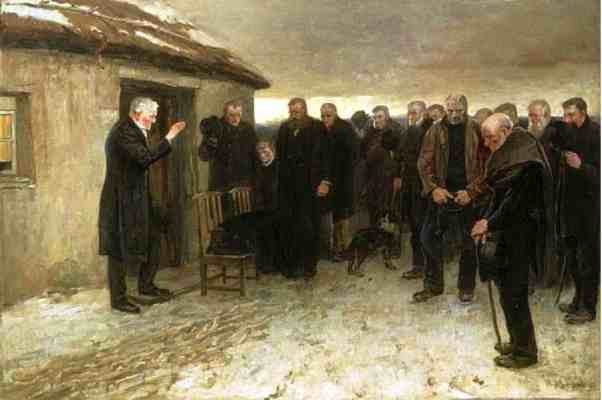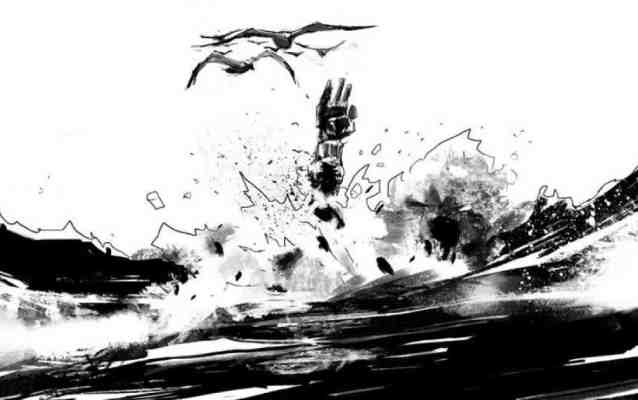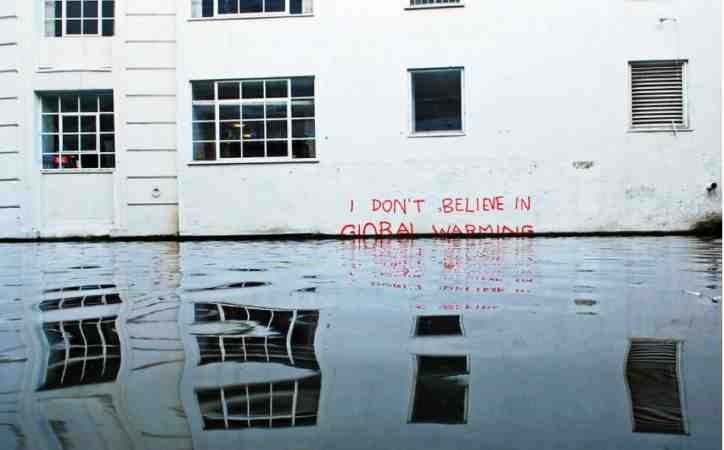
Above is a painting of a 19th century Scottish funeral. During this time, many believed that eating a piece of bread or pastry from the deceased individual's face or chest absolved them of their sins as they passed into the afterlife. As the tradition evolved, Sin-eaters were people who got paid to absorb the sins of the recently deceased.
This year’s theme is "Debt". Programming for the 2019-2020 academic year is receiving additional support from a SUNY Conversations in the Disciplines Grant to explore the relations between Care, Crisis, Climate, and Debt. To open our conversation, Margaret Atwood's 2008 contribution to the Massey Lectures Payback:Debt and the Shadow Side of Wealth is this year's common read. Atwood describes debt from its ancient origins to it contemporary form as a central metaphor in religion, literature, and as a structural force in modern human societies. This interdisciplinary examination of Debt moves us beyond the narrow constraints of finance and money management to think about Debt as a human construct that can be utilized to manufacture crisis or cultivate care. We must all be thankful that the job of Sin-eater is a construct of redemption that has long been abandoned.
Inspired by Atwood's interdisciplinary and expansive view of Debt, we will be publishing a second Field Guide. Last year's Field Guide to Zombies and Surviving the Apocalypse featured recipes from our very own Chef James Webb, a number of interesting academic and popular culture articles, as well as art created by a number of graphic design students that were featured both online and in an exhibition in Old Main's Colloquium Room 220. This year we are excited to open Field Guide submissions to our featured Conversations in the Disciplines guests as well as Cortland faculty, staff, and students to contribute original works exploring Care, Crisis, Climate, and Debt. We plan to publish this collected works under the Global Institute for Sustainable Prosperity's book series with Palgrave-MacMillan.
View this year's calendar of events.
Care, Crisis, Climate, and Debt

An image from Javier and Juan Gallego's graphic novel, As if They had Never been, depicts the tragic death of immigrants in the Mediterranean Sea.
For the 2019-2020 academic year, the Cultural and Intellectual Climate Committee plans a year-long multi-disciplinary discussion focused on Debt. Debt is a concept that appears to be straightforward. However, as we become increasingly reliant on debt to finance everything from our education to daily household activity, questions about its efficacy and links to both financial and environmental crisis must be interrogated. This interrogation needs to come from not only the traditional economics and finance perspectives but also from an interdisciplinary collection of voices committed to telling a more complex story and starting a new discussion. This new discourse must re-imagine credit relationships to overcome the challenges created by debt’s role in perpetuating vast inequality across socioeconomic categories as well as how to address the crises of climate change.
For example, Javier and Juan Gallego's work above is a tribute to potentially a thousand immigrants who lost their life at sea and asks the question: "How is it possible that these people were non-existent?" How do we not know who was lost? What have we constructed socially to put so many lives in danger? Atwood (2008) hypothesizes that without memory there cannot be debt, so by creating a memory for these lives, have we created an obligation? If so, to whom? Further, who else is drowning in our society and how do we solve these problems? Reconciliation, forgiveness, or do we simply need more complex expressions debt?
This year's program promises to deliver a platform for building this new story. We look forward to discussions about criminal justice, and paying one's debt to society, reconciling our carbon debt through sequestration and sustainable farming, student loans and the possibility of forgiveness, as well as many other relevant topics. To submit an event, a Field Guide contribution, or volunteer to support this year's activities and programming please email Benjamin Wilson.
We hope that you will join us in building the Field Guide, at scheduled events, and that you also engage in your courses and student activities through the common read.
A Field Guide to Debt: Care, Crisis and Climate

From Bored Panda's 64 Powerful Street Art Pieces That Tell the Uncomfortable Truth.
Introduction
At the end of Margaret Atwood's text she argues, "Like all our financial arrangements, and like all our rules of moral conduct—in fact, like language itself—notions about debt form part of the elaborate imaginative construct that is human society. What is true of each part of mental construct is also true of debt, in all its many variations: because it is a mental construct, how we think about it changes how it works." This collection of writings calls for an alternative construct of how debt and more broadly promises to each other operate to sustain healthy and equitable societies and heal our planet.
Fall 2019 Events
Tuesday, September 17, 7 - 8:30 p.m. - Corey Union's Exhibition Lounge.
The Institute for Civic Engagement is hosting a deliberative dialogue - The U.S. Constitution, Citizenship, and Climate Change. Please reserve a seat by emailing john.suarez@cortland.edu by September 12.
Tuesday, September 24, 5 - 6:30 pm - Room 104, Sperry Hall.
Dr. Christopher Wildeman from Cornell University will be joining us to discuss the discriminatory impact of mass incarceration in the U.S. on family health and well-being in contrast to Denmark's approach to criminal justice that emphasizes rehabilitation.
Thursday, September 26th, 5 - 6:30 p.m. - Room 104, Sperry Hall.
Screening the film Payback, the film adaptation of our common read by Margaret Atwood.
Friday, September 27, 9 - 10:30 a.m. - Room TBD, Dowd Fine Arts Center.
Dr. Juan Gallego will be joining us to discuss his work on immigration as well as his next Graphic Novel The Plague.
Wednesday, October 9, 5 - 6:30 p.m. - Jacobus Lounge, Brockway Hall.
Professor Todd McLane and Dr. Kelly Wessell from Tompkins Cortland Community College will join us to discuss sustainable development, ecological debt, and how the food system can be used as a way to connect students to culture and their environment.
Thursday, October 24, at 4:30 p.m. - Colloquium Room 22, Old Main.
Care,Crisis, Climate, and Debt: A Graphic Design Exhibition opening hosted by Szilvia Kadas, Benjamin Wilson and the Dowd Gallery.
Tuesday, October 29, 5 - 6:30 p.m. - Room 104, Sperry Hall.
Dr. Silvia Fedirici professor emerita at Hofstra University will join us to discuss the devaluation of care through student loan debt and its relation to gender inequality.
Monday, November 4, 6:00 p.m. - Moffett Center, Room 2125.
"Local Water Concerns" presented by Doug Withey discuss Cortland's Municipal Water System treatment and delivery.
Tuesday, November 12, 5:30 - 7:00 p.m. - Jacobus Lounge, Brockway Hall.
Climate Keywords Panel Discussion featuring
Dr. Toby R. Ault, Cornell University, Assistant Professor of Earth and Atmospheric Sciences
Dr. Chris Badurek, Associate Professor of Geography
Dr. Andrea Davalos, Assistant Professor of Biology
Dr. Li Jin, Professor of Geology
Moderated by Dr. Jeremy Jimenez, Assistant Professor of Social Advocacy in the School of Education
Wednesday, December 4, 5:30 p.m. - 7:00 p.m. - Jacobus Lounge, Brockway Hall.
Professor Howard Lindh hosts "A Reading of Charles Dickens A Christmas Carol."
Spring 2020 Schedule of Events
Thursday, February 6, 5 - 6:30 p.m. - Jacobus Lounge, Brockway Hall.
Dr. Maggie Dickinson from CUNY Guttman Community College will join us to discuss the growing food crisis, care, and the abandonment of America's food safety net.
Wednesday, February 19, 12:30 p.m. - Jacobus Lounge, Brockway Hall.
Dr. Benjamin Wilson will present "The Green New Deal and the Promise of Full Employment."
Thursday, February 20, 5 - 6:30 p.m. - Room 105, Sperry Hall.
Dr. Stephanie Kelton from Stony Brook University will be joining us to discuss Modern Monetary Theory and the policy proposals, including the Green New Deal, that this economic framework makes possible.
Tuesday, March 10, 5 - 6:30 p.m. - Jacobus Lounge, Brockway Hall.
Dr. David Fruend from University of Maryland will be joining us to discuss the history of discriminatory lending practices in the U.S. and its role in perpetuating intergenerational inequality.
Wednesday, March 11, 5 - 6:30 p.m. - Jacobus Lounge, Brockway Hall.
Dr. Joelle Leclaire from SUNY Buffalo State will be joining us to discuss macro-financial stability and household debt from the perspectives of American Post-Keynesian Economics, the Cambridge approach, and the Monetary Circuit School.
Thursday, March 12, 5 - 6:30 p.m. - Jacobus Lounge, Brockway Hall.
Dr. Scott Ferguson from University of South Florida will be joining us to discuss the politics of care and the aesthetics of money.
Thursday, April 9, 5 - 6:30 p.m. - Jacobus Lounge, Brockway Hall.
Dr. Jakob Feinig from Binghamton University will be joining us to discuss money creation from the perspective of popular knowledge and democratization as a means for delivering improved social outcomes.